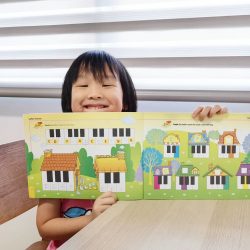SingaporeMotherhood | Lifestyle
October 2021
Retirement 101 for Parents in Singapore

Raising a child can be an expensive responsibility for parents in Singapore. It starts even before the little one is born, with pregnancy and birth costs. And as your child grows, so do the expenses. While the cost of raising a child varies depending on your lifestyle, it is certain that living costs will continue to rise.
Focusing on daily needs means few think about future requirements, let alone retirement. But planning for retirement is important, says Ms Lissa Ng, Senior Financial Representative at Great Eastern. According to the 2019 Singapore Public Sector Outcomes Review, Singaporeans have one of the highest life expectancy in the world. This means we will all need a larger pool of funds for our golden days.
(See also: 5 Financially-Savvy Super Mums in Singapore who inspire us this IWD)
Can you live on a dollar a day when you’re old?
A recent “The State of Retirement in Singapore” survey (published August 2021) surveyed 304 retirees aged above 63 years. It showed that those who did not plan for retirement had only about one dollar a day ($30 per month) after accounting for daily living expenses. This would leave them unable to cope should unexpected or additional expenses arise.
On the other hand retirees who planned (with professional advice) had an average of $605 extra (based on current monthly income – current monthly expenses) per month. Retirees who had planned for retirement, but without professional advice, had about $330 extra to spend monthly.
Hence “it is crucial to take proactive action to start your financial planning,” Lissa advises.
“Plan ahead and early with professional advice to achieve your financial goals and be financially independent in your retirement years, so that your own children will not be financially stressed to provide for you when they grow up.”

What are the biggest financial mistakes that young parents make?
“One of the biggest financial mistakes that young parents make is neglecting their own financial planning. That’s because they prioritise their family and children’s needs first.
This puts everyone at risk. If mishaps happen, such as accidents that result in one parent being unable to work over a long period or becoming disabled, it will be challenging to continue providing for their children’s needs.
Stay-at-home mums also need to plan so that they can be financially independent later in life.
Women tend to place family needs first and might not plan ahead for their retirement. Moreover, women have longer life expectancy than men and will therefore require more retirement funds.
(See also: A Guide to Investment for Stay-at-home-Mums)
As a new parent, what do I need to consider?
Review your plans: Firstly, review your financial plans and goals as your needs have changed. With a new dependent, you need to have sufficient insurance coverage to protect yourself and your loved ones from unforeseen situations and unexpected expenses.
Plan for your child’s education: Secondly, start planning for your child’s education expenses. You can do this by seeking advice on endowment plans to fund their university or tertiary education.

Will you be upgrading?: Thirdly, consider if you plan to move to a bigger house as your family grows. If so, ensure that you have sufficient funds for the purchase, and can service the monthly mortgages without being over-stretched.
Plan for your retirement: Last but not least, start saving and planning early for your retirement. Your child or children might not be financially independent when you reach retirement age. Therefore, it is essential to ensure that you have enough to be self-reliant during your retirement years.
How can parents child-proof their retirement?
- Plan for both your children’s needs and your own retirement needs at the same time and draw up a structured plan to cater to both.
- Ensure that you are all well-protected. Health care expenses such as hospitalisation bills can severely affect your retirement lifestyle. A March 2021 survey on critical illness found that more than S$250,000 was spent on medical and hospitalisation bills for patients and their caregivers. This could easily deplete whatever savings you have. An all-rounded comprehensive health insurance which includes hospitalisation and critical illness (CI) plans can help offset unforeseen long-term care expenses.
- Do not over-stretch expenses.
Use the 50-30-20 rule where you allocate 50 per cent of your take-home monthly income for expenses and necessities, 30 per cent for short-term and long-term goals such as making a downpayment for a property or for an education fund, and the remaining 20 per cent for your desired lifestyle needs, such as travel.

You should also consider your desired retirement lifestyle and know the retirement income amount you need when they retire.
What’s the best way for young parents to start planning for the future?
Do holistic planning with a professional financial representative to draw up a structured financial plan. This ensures that your retirement plans will not be derailed by unexpected events. The financial plan should include:
- Insurance/Protection solutions against unexpected large costs such as medical expenses. This should include health insurance and hospitalisation plans.
- Endowment plans to build savings for your children’s education costs and your own savings for retirement.
- Putting small monthly amounts in unit trusts, bonds or investment-linked plans to gain potentially higher returns. This can help to accumulate your retirement funds.

Spend time together to jointly map out in detail the family’s financial situation. Think about recurrent loans and bills, children’s expenses and other miscellaneous expenses. Then see how you can trim your expenses and save more for your future, and your retirement.”
Featured image: Scopio
All content from this article, including images, cannot be reproduced without credits or written permission from SingaporeMotherhood.
Follow us on Facebook, Instagram, and Telegram for the latest article and promotion updates.





